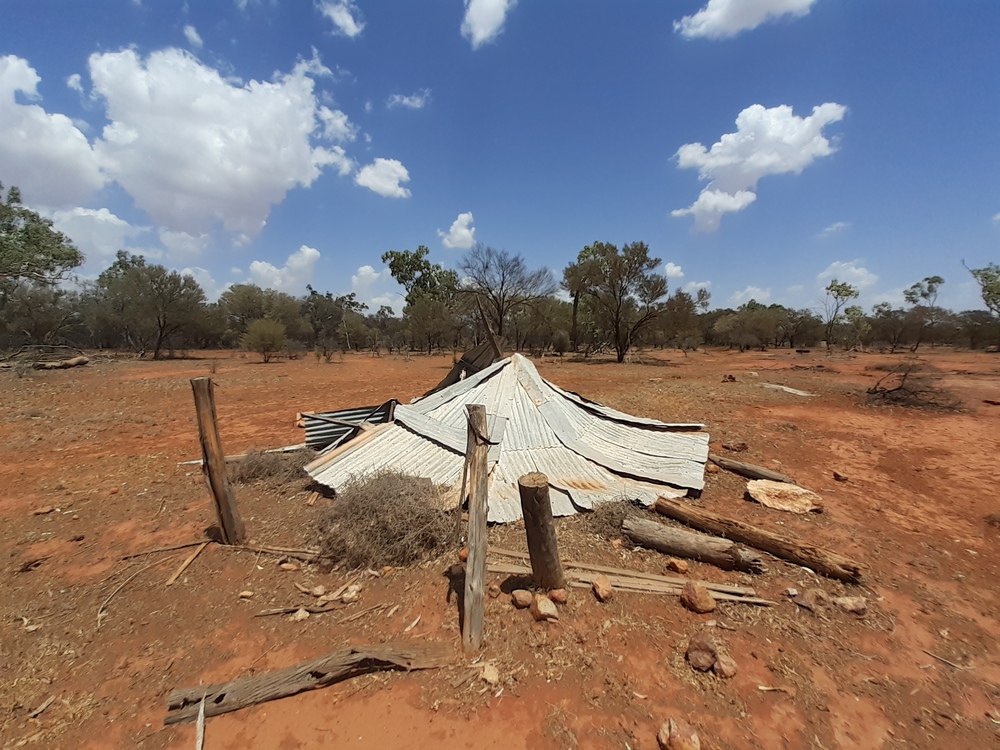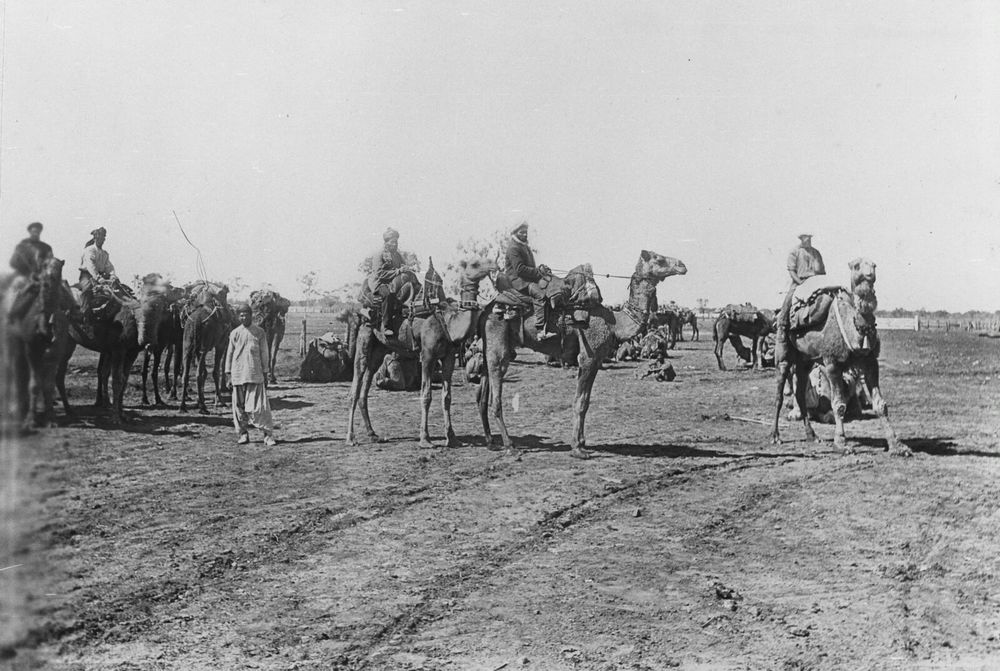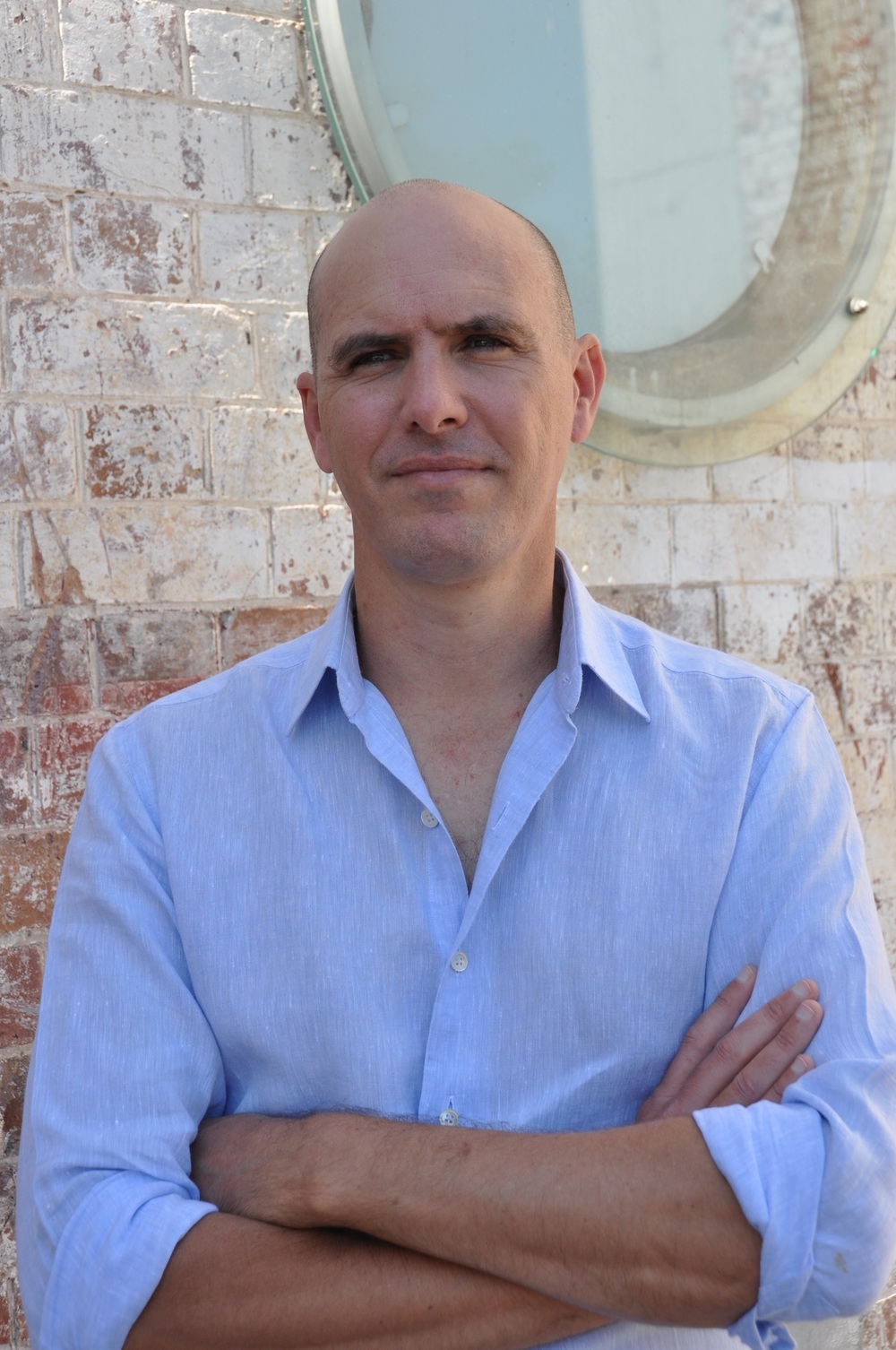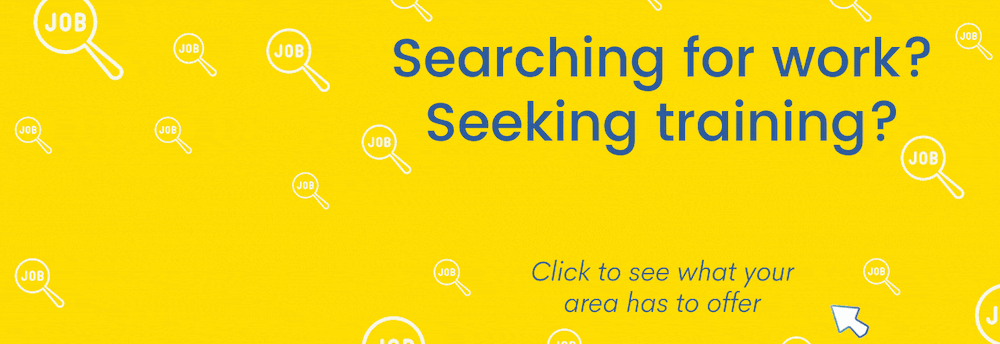Bourke and Brewarrina's untold history of modern Australia
Laura Williams
22 September 2022, 3:40 AM
 Camels on the Wanaaring Road outside of Bourke. (Supplied)
Camels on the Wanaaring Road outside of Bourke. (Supplied)Ryan Butta left his childhood home of Brewarrina a long time ago, but it was the call of a good story that brought him home: The Ballad of Abdul Wade.
In his travels, Ryan found that through no fault of our own, Brewarrina and Bourke of the 1800s likely looked different to what we would imagine.
“I got hold of the Brewarrina Historical Society Books and there was a picture of some camels in there...I was just fascinated at why these camels were in the main street of Brewarrina in 1890,” Ryan said.
Through deeper research, Ryan discovered the untold history of Abdul Wade, who brought camel trains to the outback in the 1890s.
The Afghan entrepreneur was hailed a hero by local communities, providing access to remote settlements when British colonists with horses couldn’t.
Abdul Wade was one of many people whose story was white-washed away from local history, including other Afghans involved in the camel driver business.
“Bourke was a very multicultural palace. There were Spaniards, Germans, Swedish and Norwegian people, Indians and Afghans. It wasn’t all just British, Irish and Scottish settlers, in addition to the Indigenous population,” Ryan said.

Remains of Abdul's mosque on his property at Wangamana. (Supplied)
While the available history of Abdul and his peers is scarce - which makes researching for a book difficult - Ryan turned to newspapers of the time.
“There was a little bit of information about Abdul in modern histories, but not much and it didn’t paint him in a great light. When I went back to the newspapers, there was a lot of information, he was in the newspapers all the time and a really prominent identity in colonial New South Wales,” Ryan said.
“I wanted to try and recapture that version of him from the reporters of the day. That image of him was a very well respected entrepreneur and someone who contributed a lot to building a modern Australia.”
While those outside of Bourke and Brewarrina know little of the history, the communities have come to celebrate Abdul Wade.
“I think they’re very proud of that Afghan history, I think they really like that multicultural history,” he said.
Across Australia, however, Ryan recognises that there are miles to go in recovering and acknowledging untold history in the local area, as well as the entirety of Australia.

Camels and men between Bourke and Cunnamulla. (Supplied)
“This year there’s a celebration of 100 years since Henry Lawson first arrived in Bourke, but Henry Lawson spent a couple of weeks in Bourke and then a few more months in the outlying areas, but didn’t really like it that much.”
“Recently we had the 150 years of the Overland Telegraph Building and that wouldn’t have been able to be done without the Afghan men and Indian men and their camels. And yet nowhere in the celebrations was it even mentioned that they were involved.”

Ryan Butta spent his early childhood on a property outside of Brewarrina. (Supplied)
“I think it’s really important that we create a space in history to acknowledge those people that weren’t white but did make a huge contribution to building modern Australia,” Ryan said.
Ryan’s book The Ballad of Abdul Wade interrogates why some people have been written out of history, revealing an unknown episode of Australian pioneering history.
